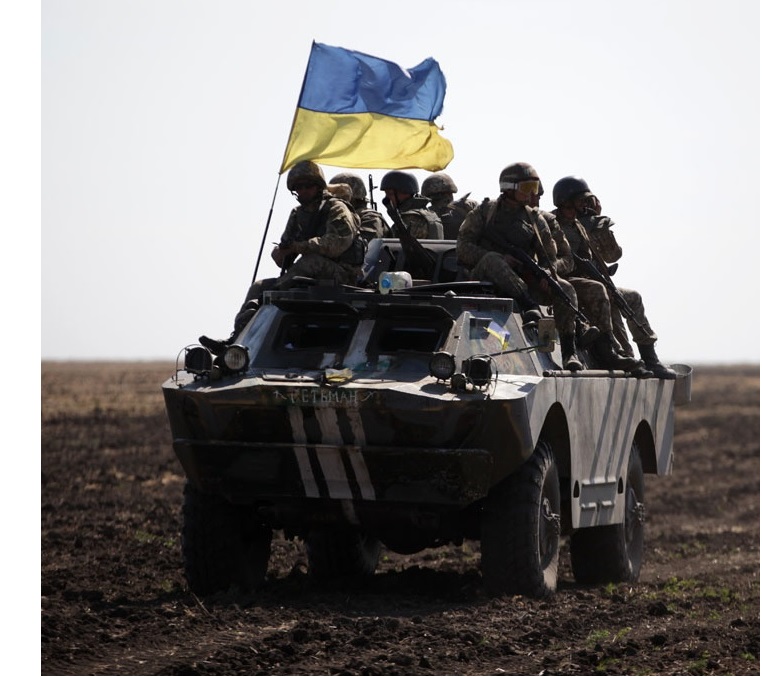
Just a few weeks ago, we named-dropped two Ukranian startups that are making innovative products of possible interest to amputees in the US and around the globe. So when Russia launched its invasion last week, our thoughts first went to those companies. We’ll tell you below how those firms are weathering the Russian attack so far.
But the war’s impact on the limb-loss community might extend far beyond the fate of some small biotech companies. Not to be too doom-and-gloom about it, but there are always unintended and unforeseen consequences when the ammunition starts flying. Russia’s invasion of Ukraine may ultimately not affect the amputee community at all, or the impacts may be small or indirect. Nothing can be predicted with confidence at this point. Whatever the case, the considerations below are among the many reasons to pray for peace in Eastern Europe.
Disruption of the Titanium Supply Chain
Russia is the world’s second-largest producer of titanium; Ukraine ranks fifth. Together they account for roughly 15 percent of the global supply of this metal, which is widely used in the manufacture of prosthetic limbs, joints, osseointegration implants, and other components.
Both producers will be largely idled in the short term—Ukraine because of the invasion, Russia because of global economic sanctions. Could a prolonged war put enough of a crimp in the titanium supply to affect the price and/or availability of prosthetic technology? Some economists think so. Others expect the invasion to drive up prices in all industries that rely on titanium, including major sectors such as aircraft, autos, medical instruments, and sporting goods.
Commodity watchers already are seeing red flags. “Titanium prices began to rise sharply on 25 February,” noted a report in Argus Media. “The movement of material in Ukraine has become increasingly difficult due to the conflict. One trader said he has 200 tons of material in a warehouse in Odessa but does not expect it to leave the country any time soon. . . . The inability to move money—either because of sanctions or simply because banks are becoming increasingly wary—is [also] becoming a major hindrance. ‘The complete collapse of the titanium supply chain was inevitable if this [war] happened,’ a ferro-titanium producer said. ‘This is a worst-case scenario.’”
It remains to be seen whether the ripple effects will ever be felt in the US limb-loss community. The longer the conflict, we would presume, the greater the odds of a global impact.
Untreated Limb-threatening Diseases and Illnesses
As the award-winning Siena International Photo of the Year illustrated, war causes limb loss in multiple ways. In addition to soldiers and civilians who lose limbs to bullets and shrapnel, shortages of medicine and clinical personnel can push individuals with diabetes, vascular disease, and other chronic illnesses into limb-threatening health crises. “When disaster or war forces people to flee their homes,” notes the humanitarian aid agency Direct Relief, “this inevitably creates a second wave of emergency medical needs.”
The Ukrainian Diabetes Federation estimates there are 15,000 children with Type 1 diabetes living in Ukraine, and health administrators already are warning of possible shortages of insulin. Antibiotics and cardiovascular medications may also run into short supply, resulting in limb loss that might otherwise have been avoided.
The irony is that Ukraine has been investing heavily in limb care and limb-loss recovery. Just a few months ago the country opened a branch of ReLAB-HS, an international program to modernize rehab services for people with disabilities in developing nations. Ukraine’s population of people with disabilities already included thousands of soldiers and civilians injured over the last decade of internal fighting between Russian-armed rebels and the central government. The need for ReLAB’s services will be bigger than ever because of the current invasion.
Potential Harm to Biotech Startups
For the last two years, the Ukrainian biotech firm Esper Bionics has been wowing tech investors and winning innovation awards for its affordable, functional bionic hand. It was among the high points at the annual Consumer Electronics Show earlier this year. Before the invasion, the company had started accepting preorders and planned to begin shipping later this year.
Esper recently moved its headquarters to New York, but much of its funding comes from Ukraine and Russia. It’s far too soon to know how, or whether, the invasion will affect Esper’s access to capital and timeline to full launch. The company’s only statement in regard to the conflict so far has been a Facebook post expressing solidarity with Ukraine.
Russia’s attack may also hinder development of the Bionic Hill technological park. Located in the heart of Kyiv, this incubator-accelerator brings together investors, scientists, universities, and corporate R&D in a wide range of industries, including bionics. The venture has ties to Silicon Valley and an ambitious scope that begins with $1 billion worth of labs, office buildings, and other infrastructure. Given its location in a city under seige, the entire site may lie in ruins by the time there’s a cease fire.
Finally, the Wall Street Journal is reporting that health-tech investors are cutting ties with Russia, and that can’t be good for startups in Russian’s nascent bionics industry. We’re aware of a few companies with noteworthy innovations, including Moscow-based MaxBionic, whose MeHand is currently undergoing FDA trials (Bionics for Everyone describes the product as “a serious contender in the bionic hand space“). Another Russian robotics company, Motorica, is the star of a Russian innovation hub known as “Cyborg Island.”
To repeat what we said at the top: We’re neither brilliant nor foolish enough to try to predict how Russia’s war on Ukraine will affect the global limb-loss community. But there’s bound to be collateral damage from this conflict; there always is. No one can say for sure that amputees will emerge unscathed.